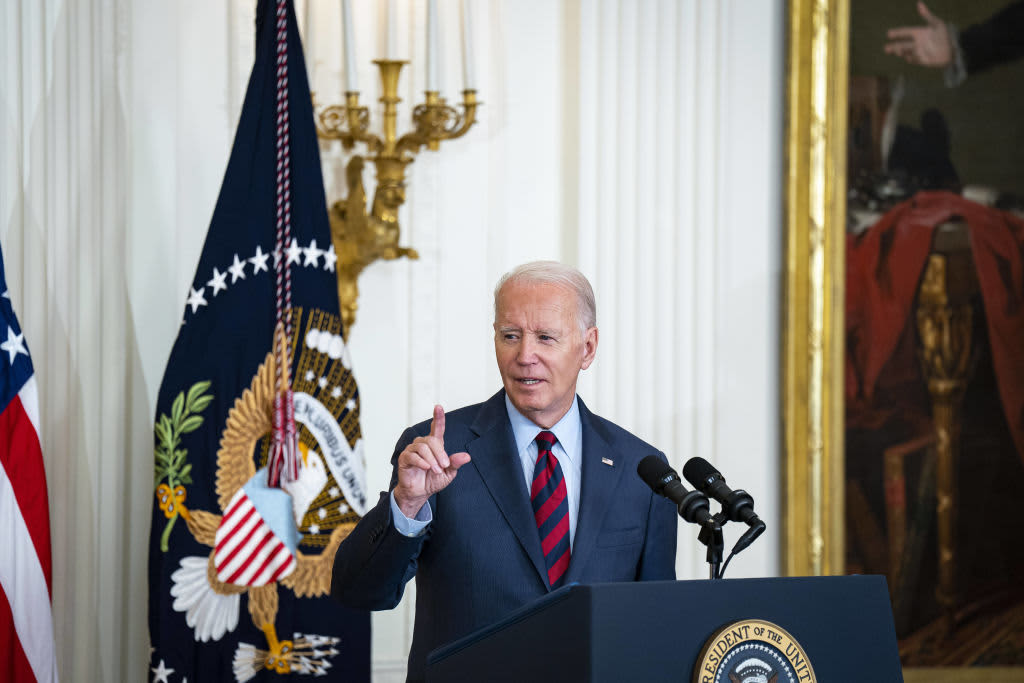Biden White House Revamps Trump-Era ‘Conscience Rule’ Allowing Care Providers to Refuse Care

 Credit: Bloomberg via Getty Images
Credit: Bloomberg via Getty Images- A handful of laws allow healthcare providers to refuse service to a patient in limited circumstances.
- President Joe Biden set forth new rules dictating how his administration will enforce those laws.
- Biden’s regulations don’t allow providers to refuse service during emergencies.
The Biden administration recently amended Trump-administration rules that govern when and why healthcare providers can refuse care to patients.
The U.S. Department of Health and Human Services (HHS) unveiled its final provider conscience rule on January 11. The regulations overturn some of former President Donald Trump’s provisions on the rule, particularly related to enforcement, while still allowing care providers to refuse care on moral or religious grounds in certain non-emergency situations.
“Protecting conscience rights and ensuring access to health care are critically important, no matter who you are, where you live, who you love, or your faith and conscience,” said Melanie Fontes Rainer, director of the HHS Office for Civil Rights tasked with enforcing the rule, in a statement. “We are proud of today’s rule, which advances conscience protections, access to health care, and puts our health care system on notice that we will enforce the law.”
Biden’s rule is slated to take effect on March 11.
Here is what nurses and other healthcare providers should know about the upcoming rule.
Provider Conscience Remains
Biden’s latest version of the provider conscience rule does not change the core of the policy.
Healthcare providers will still be able to refuse care in limited circumstances if that care conflicts with their religious or moral beliefs. Based on the language of the rule itself, the primary procedures covered by Biden’s rule include:
- Abortion
- Assisted suicide
- Euthanasia
- Sterilization
The policy also protects a parent’s right to refuse treatment or other medical service for their child if it conflicts with religious beliefs, although parents and providers must still comply with state laws.
It’s worth noting that the rule only applies to healthcare facilities that receive federal funds, including from Medicare and Medicaid. Most healthcare systems, however, do receive some form of federal funding.
Biden’s rule places new limits on the scope of which workers the regulations apply to.
Under the Trump-era rule, it could be argued that a healthcare professional or someone working for a facility could refuse to drive a patient to a care facility if that patient plans to receive an abortion. The Biden rule aims to narrow the rule’s focus to workers who would actively assist or carry out the procedure.
Biden’s regulation also offers slightly more clarity on whether providers could deny gender-affirming care.
“The department reiterates its commitment to ensuring that patients are not discriminated against, including by being denied health care on the various bases protected under civil rights laws,” the regulations state.
HHS adds that federal laws only allow providers to object to aiding in certain kinds of procedures, including abortion and sterilization. Refusing care beyond those procedures due to someone’s gender or sexual orientation, however, may not be allowed based on HHS’ interpretation of the law, as outlined in the regulations.
Application to Emergency Situations
Biden’s rule makes it clear that healthcare providers must still provide necessary services during medical emergencies.
The rule clarifies that no state or federal laws outweigh a healthcare provider’s requirement to administer emergency services. The Emergency Medical Treatment and Labor Act calls on all providers to provide an examination or treatment in cases of an emergency medical condition.
Facilities must also provide stabilizing care once the emergency condition is treated.
The Centers for Medicare & Medicaid Services (CMS) clarified that this includes abortion.
“In circumstances in which the appropriate stabilizing treatment is care that could fall under a definition of abortion, the hospital is required to offer that stabilizing treatment irrespective of any directly conflicting state law,” CMS’ guidance states.
A preliminary injunction in Texas means CMS cannot enforce the abortion policy in the state of Texas. It may also not enforce this interpretation against the members of the American Association of Pro-Life Obstetricians and Gynecologists and the Christian Medical and Dental Association.
Changes to Enforcement
The new regulations make it clear that the HHS Office of Civil Rights can use informal means to address a complaint. However, when informal means are unavailable or prove unsuccessful, the office may work with the relevant government department to enforce the provider conscience rule.
That may include:
- Revoke federal grants or contracts provided to the healthcare provider
- Withhold funding
- Refer enforcement items to the Department of Justice
Enforcement was a major hangup regarding the Trump-era rule. Court cases in New York, California, and Washington stopped the rule from ever taking effect, largely because it had penalties for non-compliance that “violated the separation of powers,” according to HHS.
A judge dismissed an appeal attempt in the New York case, essentially killing Trump’s rule before it took effect.
You might be interested in

The White House’s $100 Million Commitment to the Nursing Workforce: What Nurses Need to Know
Inside President Joe Biden’s $100M investment in the nursing workforce and nursing education.

Abortion Care Training Programs for Nursing Students (And You Don’t Have to Live Nearby)
After Roe v Wade fell in 2022, abortion training has become even more important for nurses to receive. Keep reading to learn about abortion education programs available for nurses.

What is a Labor and Delivery Nurse?
Read this guide to learn about L&D nurse occupational duties, work environment, education, training, and prospective salaries.